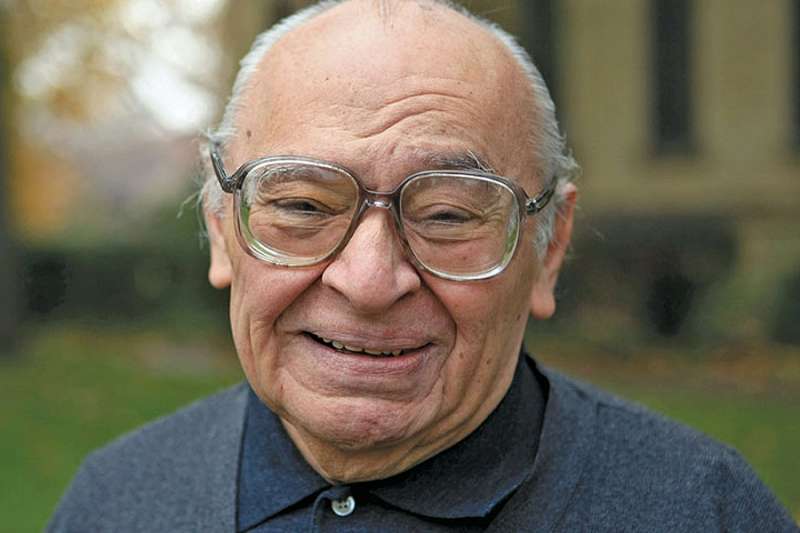Pope Francis has sent a birthday greeting to Fr. Gustavo Gutierrez, widely considered the father of liberation theology, thanking him for his service to the Church and his dedication to the poor.
In a letter dated May 28, Pope Francis assured the Dominican priest of his prayers as he reaches the landmark age of 90, and said he thanked God “for what you have contributed to the Church and to humanity through your theological service and from your preferential love for the poor and discarded in society.”
“Thank you for your efforts and for your way of challenging the conscience of each person, so that no one can be indifferent faced with the drama of poverty and exclusion.”
Francis closed the letter encouraging Gutierrez to “continue with your prayer and your service to others, giving witness to the joy of the Gospel.”
Fr. Gustavo Gutierrez Merino, who will turn 90 June 8, was born in Lima and is considered by many to be the father of the liberation theology movement, which sprung up in Latin America in the 1950s.
Gutierrez is the John Cardinal O'Hara Professor of Theology at the University of Notre Dame.
In a 2015, Gutierrez, wrote an article in the Vatican newspaper L'Osservatore Romano, saying there are two schools of thought on poverty, both of which are rooted in the Gospel.
The first form of poverty, he said, is focused on Christ's sensitivity toward the poor and their suffering, while the second is that Christ himself “had lived a life of poverty, and so Christians, from their origin, understood that in order to be his disciples they also had to live a life of poverty.”
The Peruvian said that both “poverty as scandal and poverty of spirit” can be useful, however, their meaning must be interpreted in the modern historical and global context.
Gutierrez said “a new notion of poverty” has emerged over the past century, and that “poverty, in bible and in our times, is not a merely economic issue. Poverty is very much more than this. The economic dimension is important, perhaps primary, but it is is not the only one.”
Liberation theology is often criticized for offering a Marxist interpretation of the Gospel, focusing on freedom from material poverty and injustice rather than giving primacy to spiritual freedom.
Gutierrez himself has never been censured by the Vatican, though the Vatican has warned about the implications of liberation theology and its excesses.
Under Cardinal Joseph Ratzinger, the Congregation of the Doctrine of the Faith twice issued instructions regarding liberation theology, the first being 1984's Libertatis nuntius, which drew attention to “the deviations, and risks of deviation, damaging to the faith and to Christian living, that are brought about by certain forms of liberation theology which use, in an insufficiently critical manner, concepts borrowed from various currents of Marxist thought.”
That document was followed in 1986 by Libertatis conscientia, which presented Christian doctrine on freedom and liberation.
“Through his Cross and Resurrection, Christ has brought about our Redemption, which is liberation in the strongest sense of the word, since it has freed us from the most radical evil, namely sin and the power of death,” the congregation said.
Truth beginning with the truth about redemption, which is at the heart of the mystery of faith, is thus the root and the rule of freedom, the foundation and the measure of all liberating action.

